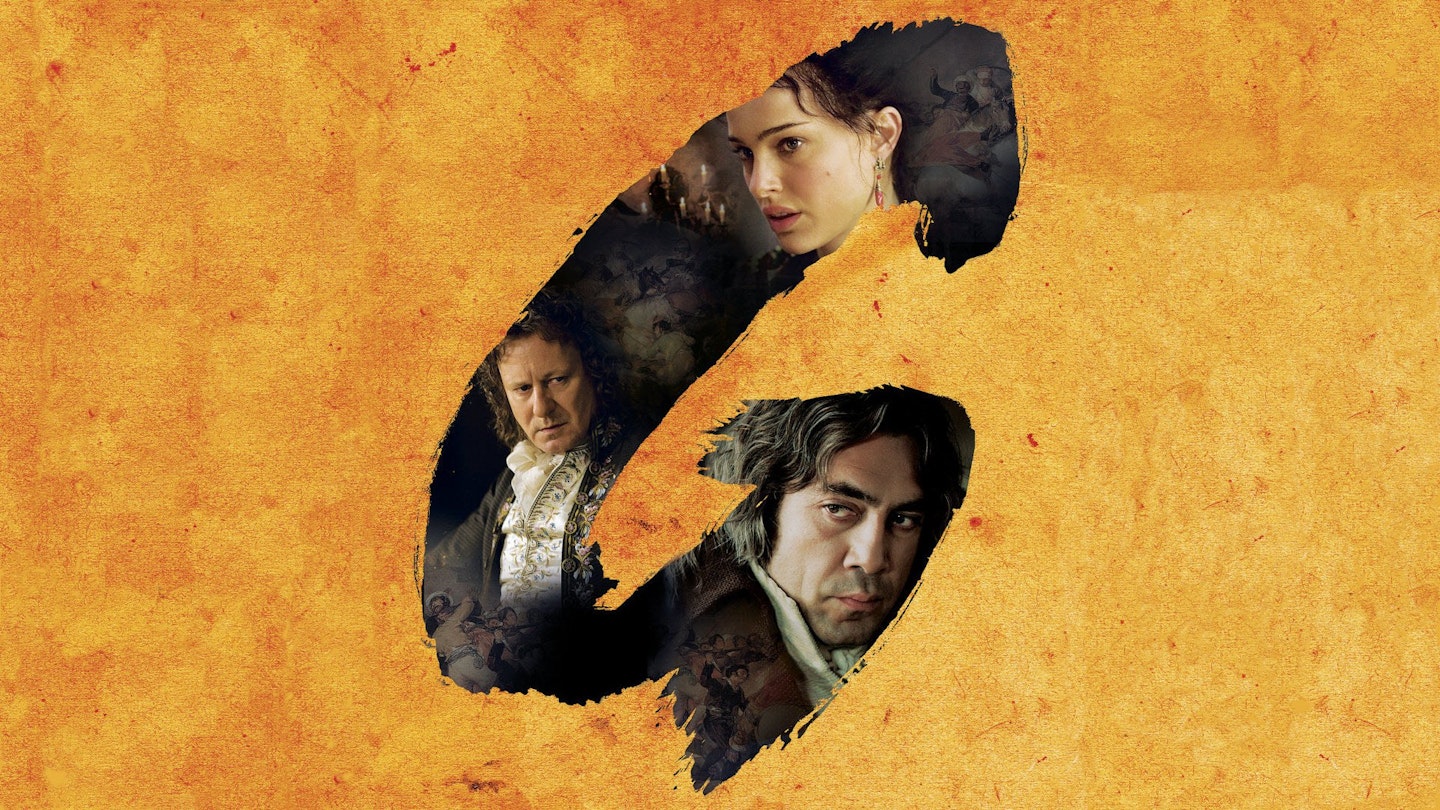The moral and physical chaos of Spain under a comically corrupt monarchy, the less amusing Inquisition, Napoleon’s idiot brother and the Duke of Wellington obviously reminds the Czech Milos Forman of his homeland’s 20th century sufferings, and this is less a history lesson than a procession of generalised injustices. Though Goya, played as cuddly survivor and obsessive chronicler of his times by an oddly-cast Stellan Skarsgård, could supply more than enough biographical meat to carry a movie, Forman opts to make him only an audience surrogate, while the action takes place amongst made-up people who act like Punch & Judy puppets, cracking up or weaselling out as tidal waves of history surge around them.
Javier Bardem, doing weird vocal tricks, is initially uncomfortable as a straight-backed Catholic fanatic, but when he’s hung over a dinner table by the father of a girl accused of secret Judaism (she passes up a ghastly-looking pork dish in a pub) and he recants his iron faith in record time, the performance begins to work. Bardem’s Lorenzo is an eminently hissable baddie, equally loathsome as a lecherously sadistic priest or a smugly revolutionary family man, and goes out of his way to make life wretched for two generations of womenfolk played by a game Natalie Portman (who spends half the film caked in mud and scabs). The plot has the cardboard complexity of a lesser 18th century novel, with messengers turning up every ten minutes with bad news about world events (another guillotining, invasion or defeat) and characters scurrying around bumping into each other on lovely Spanish locations over decades.
Goya sketched and painted grotesque horrors and everyday life with the same skill — and Goya’s Ghosts would like to take the same approach. Though the script was co-written by Jean-Claude Carrière, a frequent collaborator of Luis Buñuel, Forman doesn’t have the cruelty of that Goya-like Spanish master, and the film is often fatally uncertain of its effects. Not funny enough to be a black comedy, grand enough to be an epic, or obsessive enough to be a biopic, this still manages a kind of sit-com horror crossed with an art history masterclass.
